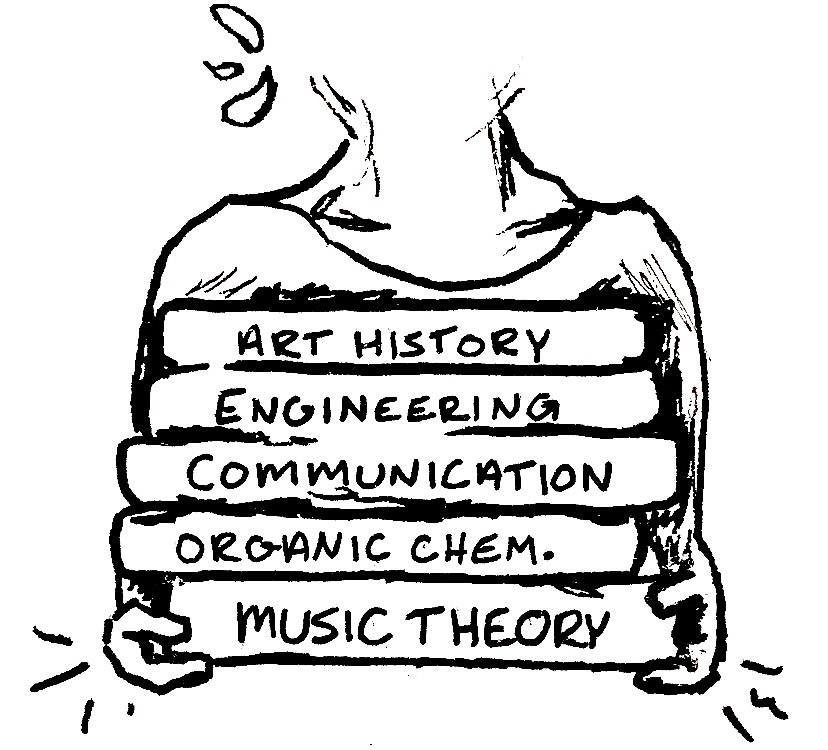It’s no secret that class registration at Trinity University is one of the most stressful times on campus. Between trying to get into classes for your major, sections filling up before your registration slot and classes overlapping, it’s no wonder that students feel frustrated with the Pathways requirements they must fulfill that only make the registration process more complicated. Not only do you have to complete your major, you also have to fit in all of these seemingly random classes that have nothing to do with what you want to study. It’s enough to make a student wonder why they ever chose to go to a liberal arts university.
A liberal arts education, broadly, is one in which students take a variety of classes across multiple disciplines. There is an emphasis on producing a graduate who is not only educated in their chosen field, but is also able to critically think and speak about real world issues. Students take courses that focus on reading and writing, allowing them to develop communication and analysis skills they might not have been exposed to otherwise.
Although many people bemoan how a liberal arts education only makes figuring out how to graduate in four years harder, this curriculum is more than just a roadblock to a straightforward plan. The ability to critique information presented to you is important in both the workplace and in daily life. It allows people to make more informed social and political decisions without being too swayed by rhetoric. Employers value workers who are able to think critically and communicate well with others, both of which are skills emphasized in a liberal arts education.
Beyond that, taking humanities classes helps create socially informed and responsible citizens. By taking an English or a sociology class, we often cultivate the ability to understand and process other perspectives while forming our own. We learn to critique why our society is the way it is and how we can make it better, rather than just accepting what we are given.
Figuring out how to work in these classes amidst an already complicated schedule can be exhausting. However, the problem is not the variety of subjects that need to be incorporated but rather the difficulty of getting into these classes. They are often only offered in select semesters, or have prerequisites or simply just fill up before you even get a chance to try and register.
These problems are more related to administrative decisions regarding availability of classes or having enough faculty to teach than to something inherently wrong with a liberal arts education. Maybe we need more faculty to teach these Pathways courses or maybe some classes need to have larger sizes so more students are able to register for these classes, but it is not the class subjects themselves that cause this problem. Ultimately, most of Trinity’s students graduate within four years, so these multidisciplinary requirements don’t seem too much of an impediment to our plans.
There is a reason that many medical schools have started requiring their prospective students to take at least one sociology class before applying. No matter what field you enter or what job you choose, you will always exist in a larger society. A liberal arts education reminds us that we do not exist in a vacuum. We are individual humans with complex relations with other humans, whether through family, work, school or the larger social and political networks that underlie our existence in the 21st century. It is not a burden to be reminded of this.






